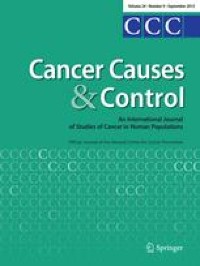Abstract
Purpose
Glioblastoma prognosis remains dismal despite gross total removal (GTR) followed by chemoradiotherapy. Other known prognostic factors include functional status, age and IDH mutation status. However, to improve patient outcome, a search for other features with impact on survival is needed. We aimed to analyse the impact of body mass index (BMI) on overall survival (OS) and progression-free survival (PFS) of surgically resected primary glioblastoma and evaluate if BMI constitutes an independent prognostic factor.
Methods
We analysed all adult glioblastoma patients who underwent surgery and chemoradiotherapy between 2011 and 2017 at our institution. Overall survival was the study—primary endpoint, and progression-free survival—the secondary endpoint. We assayed age, gender, histology, extent of resection, IDH, functional and smoking status, cardiovascular risk factors, BMI, OS and PFS. Univariate analysis was conducted followed by multivariate analysis to establish independent prognostic factors. In accordance with the World Health Organization (WHO) BMI stratification, survival curves were obtained for normal-weight (18.5–24.9 kg/m2), overweight (25–29.9 kg/m2) and obese (≥ 30 kg/m2) patient subgroups in addition to the non-obese (18.5–29.9 kg/m2) population.
Results
193 patients were evaluated, with a median follow-up time of 17.3 months. Median OS was 21.3 months in obese patients vs 16.2 months in the non-obese (p = 0.017) and 16 months in the normal weight (p = 0.007). Higher median OS was also observed in patients under 60 and those in which GTR was obtained. Median PFS in obese individuals was 9 months in comparison to 6 months in the normal-weight subgroup (p = 0.04) and 7 months in the non-obese (p = 0.050). Multivariate analysis identified age < 60 (p = 0.044), GTR (p = 0.004) and BMI ≥ 30 (p = 0.009) as independent prognostic factors for increased overall survival.
Conclusion
Higher BMI was associated with longer OS and PFS. Prospective studies are needed to validate these findings.



No comments:
Post a Comment